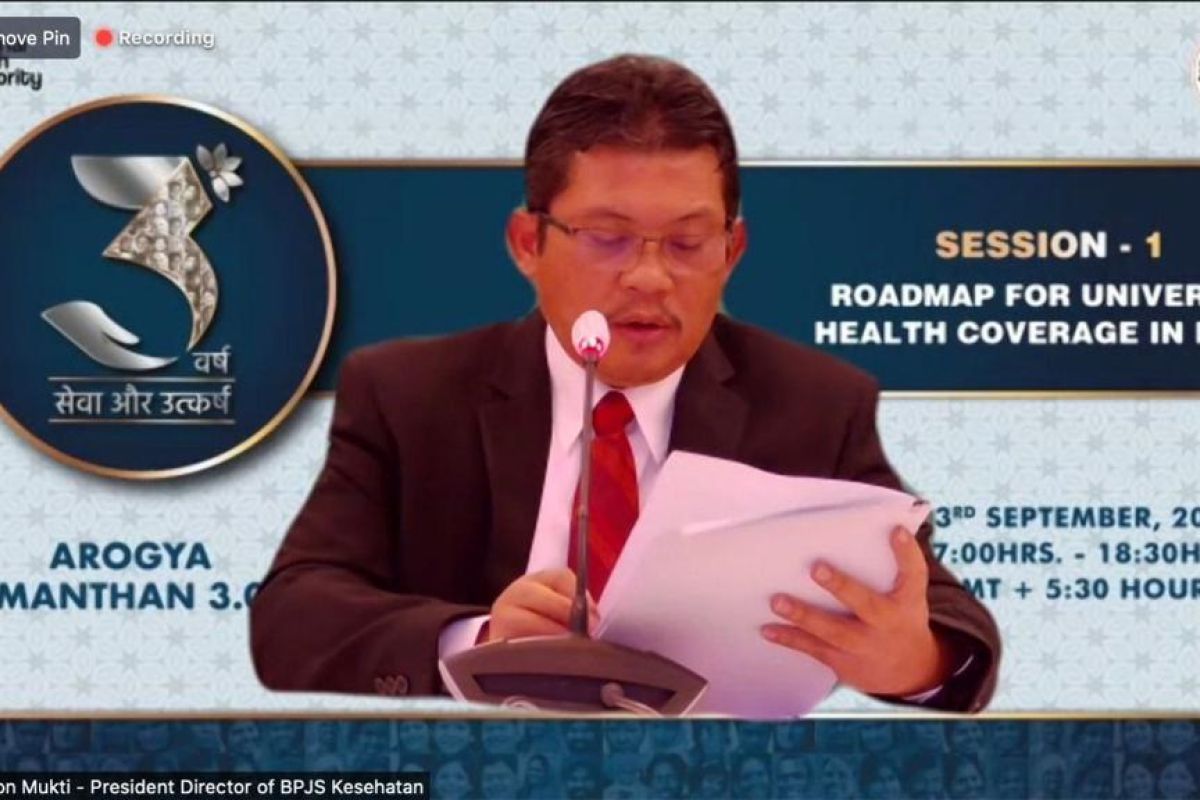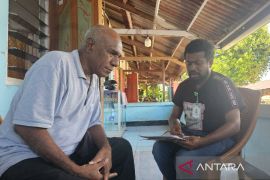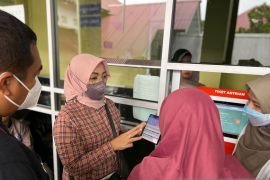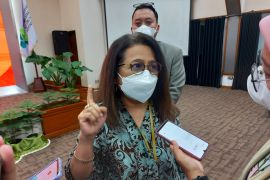Despite all this, we could see the finish line in achieving our target. We still need to collaborate with the government, medical officers, health care providers, and the residents to expand the coverageJakarta (ANTARA) - State-owned health insurance provider BPJS Health shared its experiences with the Indian health care authority to achieve universal health care (UHC) by developing the National Health Insurance (JKN-KIS) Program.
"Our national long-term development plan (RPJMN) has targeted 98-percent health care coverage to our population," BPJS Health President Director Ali Ghufron noted in his written statement received here, Friday.
Ghufron made the statement while representing Indonesia during a webinar session on the roadmap of India's universal health coverage hosted by the National Health Authority of India, Thursday (Sept 23).
Related news: BPJS' Hackathon 2021 targets boosting IT innovation in health sector
He informed that the number of participants in the health care plan totaled 226.3 million, or some 83.5 percent of the total Indonesian population, as of September 17, 2021. The membership continues to increase at a faster pace as compared to other countries, with a similar health insurance system in place, he pointed out.
Apart from being the fourth most populated country, Indonesia's population is scattered across thousands of Indonesian islands that adds to the complexity of achieving complete UHC coverage, Ghufron noted.
"Despite all this, we could see the finish line in achieving our target. We still need to collaborate with the government, medical officers, health care providers, and the residents to expand the coverage," the president director stated.
Related news: Non-communicable diseases burdening health insurance system: VP
Ghufron noted that the JKN-KIS program had improved its services based on its four main values: universality, access, quality service, and financial ease.
Universality, the first value, in essence, mandates the BPJS Kesehatan to achieve complete coverage for the benefit of the Indonesian population.
BPJS Kesehatan has also succeeded in improving its second value, access. According to the Health Policy Plus 2018 data, the use of outpatient and inpatient services among Indonesians continues to increase since the authority commenced the JKN-KIS program in 2014, Ghufron noted.
Related news: Health Minister says hospitals not trying to profit from pandemic
"The third value is quality health care services. Reviewing our program's satisfaction index, we have seen the index continues to increase. In 2014, we recorded our satisfaction index at 78.6 percent, while in 2020, we have improved the index to 81.5 percent," he informed.
Based on the University of Indonesia's Institute for Economy and Social Research (LPEM FEB UI) data, the JKN-KIS program prevented 8.1 million people from the clutches of poverty and secured 1.6 million poor from further poverty due to health issues. The LPEM FEB UI data is proof that the program has defended its fourth value to ensure financial ease, Ghufron stated.
"We admit improvements to the JKN-KIS system should continue, but we are confident that implementation of the program is already on the right track to achieve complete universal health coverage in Indonesia," he added.
Related news: President takes impromptu boat ride during Cilacap visit
Related news: Indonesia targets rehabilitating 34,000 ha mangrove areas this year
Translator: Asep Firmansyah, Nabil Ihsan
Editor: Fardah Assegaf
Copyright © ANTARA 2021












